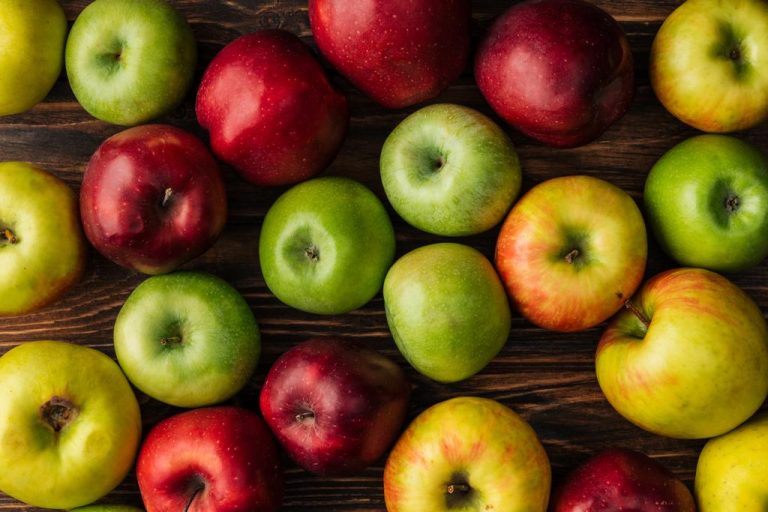Late summer and autumn are apple season. There are many different types of apples and they are considered extremely healthy. But which apple varieties are actually best for our health? We clarify!
Which ingredients make apples healthy?
But a saying doesn’t come out of nowhere. So what makes apples so healthy? Their vitamins, roughage and, above all, their secondary plant substances, which are contained in large quantities, make the apple so valuable. Secondary plant substances are, for example, polyphenols, flavonoids and catechin.
Various health-promoting effects are attributed to them, including antibacterial and strong antioxidant properties. Antioxidants have an anti-inflammatory effect and protect us from free radicals caused by stress and external environmental influences. They may also protect against various cancers. Secondary plant substances also mediate vascular effects such as widening of blood vessels and lowering of blood pressure.
Apples are also rich in fiber. These can calm and rehabilitate our intestinal flora and they are converted into short-chain fatty acids in the intestine. These serve the intestinal mucosa as an energy supplier. In addition, the fiber pectin is said to keep blood sugar levels constant and thus curb our cravings – which can be very interesting for people who want to lose weight.

Is there a particularly healthy apple variety?
As nutritionist Dr. Matthias Riedl explained to “Fitbook” that old apple varieties, such as “Berlepsch”, “Cox Orange” and “Idared”, are very healthy. This is because they contain more polyphenols that have already been bred out in newer apple varieties such as “Jonagold” or “Granny Smith”.
Polyphenols are phytochemicals that protect apples from fungal and insect infestation. However, they make an apple taste more sour and ensure that the apple turns brown faster. Since appearance is the top priority for the buyer and therefore also for the seller, the apples are specially cultivated and, in the worst case, also sprayed to avoid visual blemishes. If an apple grows in a protected, sterile orchard, it no longer has to protect itself from pests and produces little or no polyphenols.
Conclusion: In order to still be able to enjoy as many health-promoting secondary plant substances as possible, we should use older or less vigorously bred apple varieties. Old apple varieties, for example, often still grow on meadow orchards and have to protect themselves against external influences – here a high enrichment with polyphenols is guaranteed. However, there is an exception among the old apple varieties. The “Golden Delicious” is a very susceptible variety to fungal and pest infestation and is therefore almost always sprayed.

